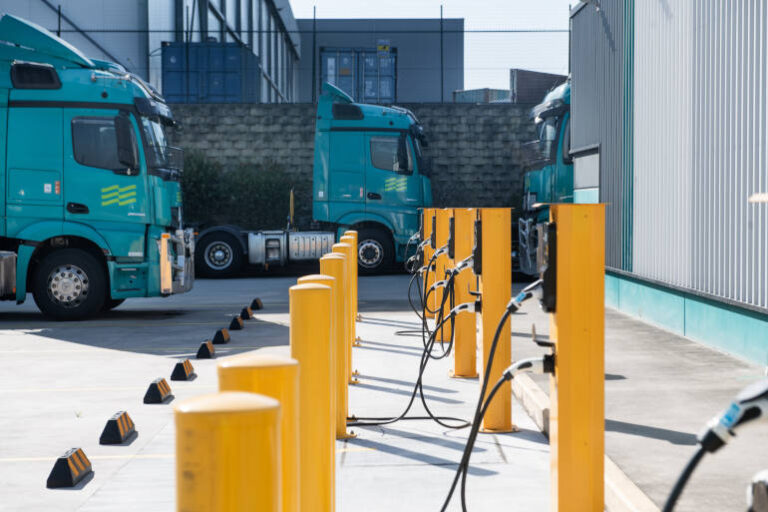As the transportation industry accelerates toward electrification, one of the biggest challenges lies in scaling EV infrastructure to meet the demands of heavy vehicle fleets. In an exclusive interview with Fleet News Group, Alex Bowler, Director of Major Projects at JET Charge, delves into the opportunities and obstacles of transitioning bus depots and transport operations to electric vehicles (EVs). With extensive experience in delivering complex EV projects across Australia, JET Charge stands at the forefront of this transition.
JET Charge’s Unique Expertise
“Our experience gives us a significant edge,” Alex states. “We’ve delivered over 20,000 EV chargers and accessories across diverse settings, from home installations to some of the largest commercial EV projects in Australia. Every project has added to our knowledge base, enabling us to refine our processes and adapt to the unique needs of heavy vehicle fleets.”
JET Charge’s involvement in high-profile projects such as Team Global Express’s Depot of the Future and Woolworths’ last-mile fleet electrification illustrates their capabilities. From initial concept design to ongoing maintenance, JET Charge delivers end-to-end solutions tailored to the specific operational needs of transport companies.
“We don’t just install chargers and walk away,” Alex emphasises. “We provide a 24/7 monitoring service as part of our maintenance package. This is critical for transport operations where downtime is not an option.”
Addressing the Infrastructure Challenge
Building an EV charging network for heavy vehicles requires meticulous planning, especially as charging needs vary by operation type. The process begins with fleet assessment, where the optimal number and type of chargers are determined based on fleet needs and operating scenarios. For example, last-mile delivery fleets often benefit from 22kW to 60kW chargers, while line-haul fleets may require ultra-fast 350kW charging units.
From site assessments and concept designs to planning for operational reliability, cost-effective installations should be insured while mitigating risks and maximising uptime for our customers.
“Charging infrastructure needs to match the duty cycle of the fleet,” Alex explains. “Over- or under-specifying the infrastructure can lead to unnecessary costs or operational inefficiencies. Since FY2023, we’ve delivered 3,154 EV projects, giving us deep expertise in tackling infrastructure challenges and striking the right balance.”
This tailored approach has proven essential in projects like the Rochedale facility for Woolworths, where JET Charge designed and installed charging systems for their electric delivery trucks. The company’s solutions also incorporate JET Charge CORE, energy management system, to optimise usage, avoid costly infrastructure upgrades and reduce costs. Hardware-agnostic, it enables the installation of more charging capacity than the site can supply by intelligently balancing the charging load against the real-time demand from the building.
Maintenance: The Backbone of EV Charging Networks
While the initial deployment of EV chargers garners much attention, Alex underscores the critical role of maintenance. “Maintenance is often overlooked, but it’s the backbone of a reliable charging network. For transport companies, achieving 100% uptime is non-negotiable.”
Operating across Australia and New Zealand, JET Charge offers preventative and reactive maintenance services backed by Service Level Agreements (SLAs) to ensure quick response times. Their data-driven EV charging asset management platform Illuminate provides real-time insights, enabling proactive issue resolution.
“If a charger goes offline, it’s not just an inconvenience—it can disrupt an entire fleet’s operations,” Alex points out. “Our 24/7 monitoring and maintenance plans give operators peace of mind and keep their fleets moving, and national field services support ensures your operations remain reliable and uninterrupted.






